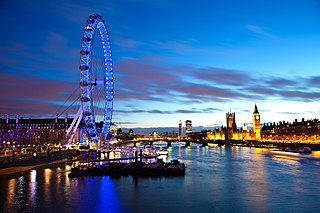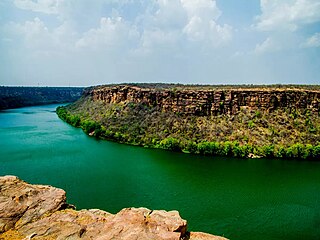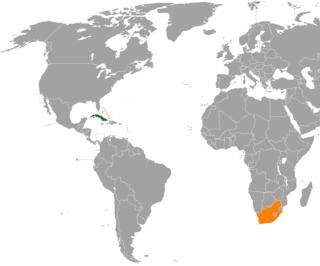Related Research Articles

Tourism is travel for pleasure, and the commercial activity of providing and supporting such travel. The World Tourism Organization defines tourism more generally, in terms which go "beyond the common perception of tourism as being limited to holiday activity only", as people "travelling to and staying in places outside their usual environment for not more than one consecutive year for leisure and not less than 24 hours, business and other purposes". Tourism can be domestic or international, and international tourism has both incoming and outgoing implications on a country's balance of payments.

Tourism plays a significant part in the economic life of England. In 2018, the United Kingdom as a whole was the world's 10th most visited country for tourists, and 17 of the United Kingdom's 25 UNESCO World Heritage Sites fall within England.

Scotland is a well-developed tourist destination, with tourism generally being responsible for sustaining 200,000 jobs mainly in the service sector, with tourist spending averaging at £4bn per year. In 2013, for example, UK visitors made 18.5 million visits to Scotland, staying 64.5 million nights and spending £3.7bn. In contrast, overseas residents made 1.58 million visits to Scotland, staying 15 million nights and spending £806m. In terms of overseas visitors, those from the United States made up 24% of visits to Scotland, with the United States being the largest source of overseas visitors, and Germany (9%), France (8%), Canada (7%) and Australia (6%), following behind.

Tourism in Australia is an important part of the Australian economy, and comprises domestic and international visitors. Australia is the fortieth most visited country in the world according to the World Tourism Organization. In the financial year 2018/19, tourism was Australia's fourth-largest export and over the previous decade was growing faster than national GDP growth. At the time it represented 3.1% of Australia's GDP contributing A$60.8 billion to the national economy.

Tourism in India is 4.6% of the country's gross domestic product (GDP). Unlike other sectors, tourism is not a priority sector for the Government of India. Forbes magazine ranked India as the 7th most beautiful country in 'The 50 Most Beautiful Countries In The World' rankings. The World Travel and Tourism Council calculated that tourism generated ₹13.2 lakh crore (US$170 billion) or 5.8% of India's GDP and supported 32.1 million jobs in 2021. Even though, these numbers were lower than the pre-pandemic figures; the country's economy witnessed a significant growth in 2021 after the massive downturn during 2020. The sector is predicted to grow at an annual rate of 7.8% to ₹33.8 lakh crore (US$420 billion) by 2031. India has established itself as the 5th largest global travel healthcare destination with an estimated market size of around $9 billion in 2019, out of the total global travel healthcare industry of $44.8 billion(2019). In 2014, 184,298 foreign patients travelled to India to seek medical treatment.

Tourism in New Zealand comprised an important sector of the national economy – tourism directly contributed NZ$16.2 billion of the country's GDP in the year ended March 2019. As of 2016 tourism supported 188,000 full-time-equivalent jobs. The flow-on effects of tourism indirectly contributed a further 4.3% of GDP. Despite the country's geographical isolation, spending by international tourists accounted for 17.1% of New Zealand's export earnings. International and domestic tourism contributed, in total, NZ$34 billion to New Zealand's economy every year as of 2017.

Dubai is one of the world's leading tourism destinations, and tourism in Dubai is a major source of revenue. The city hosted 14.9 million overnight visitors in 2016. In 2018, Dubai was the fourth most-visited city in the world based on the number of international visitors.

Tourism in Vietnam is a component of the modern Vietnamese economy. In 2019, Vietnam received 18 million international arrivals, up from 2.1 million in the year 2000. The Vietnam National Administration of Tourism is following a long-term plan to diversify the tourism industry, which brings foreign exchange into the country.

Botswana's principal tourist attractions are its game reserves, with hunting and photographic safaris available. Other attractions include the Okavango Delta region, which during the rainy season is a maze of waterways, islands, and lakes. The tourism industry also helped to diversify Botswana's economy from traditional sources such as diamonds and beef and created 23,000 jobs in 2005.

Visitors to Angola must obtain either a visa in advance from one of the Angolan diplomatic missions or a pre-visa online, unless they come from one of the visa exempt countries.

Cuba–South Africa relations refer to the bilateral relations between Cuba and South Africa. Relations were strained during the apartheid era. Cuba has an embassy in Pretoria, South Africa has an embassy in Havana.

International tourism is tourism that crosses national borders. Globalisation has made tourism a popular global leisure activity. The World Tourism Organization defines tourists as people "traveling to and staying in places outside their usual environment for not more than one consecutive year for leisure, business and other purposes". The World Health Organization (WHO) estimates that up to 500,000 people are in flight at any one time.
Events in the year 2020 in South Africa.

During the COVID-19 pandemic, many countries and regions imposed quarantines, entry bans, or other travel restrictions for citizens of or recent travelers to the most affected areas. Some countries and regions imposed global restrictions that apply to all foreign countries and territories, or prevent their own citizens from travelling overseas.
This article documents the impacts of the ongoing COVID-19 pandemic in Botswana.
The Miraculous Supernatural Tour is an ongoing concert tour by American Latin rock band Santana. The tour is in support of their twenty-fifth album Africa Speaks (2019), and it consists of concerts in North America. The tour is a continuation of the band's Supernatural Now Tour (2019). The tour was announced in February 2020, with dates being released at the same time. The show is produced by Live Nation Entertainment, and each tour date will be opened by Earth, Wind & Fire. The band is slated to perform songs from their landmark album Supernatural (1999), selections from Africa Speaks, and other hits.
Botswana saw the beginning of the COVID-19 pandemic in 2020. Lockdowns were implemented between March and May, and restrictions continued throughout the year. The previous year's general election was disputed by the opposition, and several cases were filed to overturn the results. Tensions rose with South Africa in 2020 as Botswana sought the prosecution of Bridgette Radebe. Concerns regarding wildlife conservation increased in 2020 as elephants began dying off in large numbers, as well as similar concerns about vultures. Armed conflicts with poachers continued throughout the year, including the killing of four men in November that caused protests in Namibia.
Botswana continued to address the COVID-19 pandemic in 2021, beginning its vaccination process through the importation of vaccines. On November 11, Botswana was the location of the first documented case of the SARS-CoV-2 Omicron variant. 2021 also saw the discovery of two diamonds in Botswana that exceeded 1000 carats, becoming the third and fourth largest diamonds ever discovered. In relations with its neighbouring countries, Botswana continued to address violence at the Botswana–Namibia border, and it entered into the conflict in Cabo Delgado in support of the government of Mozambique.

The COVID-19 pandemic in Malaysia has had a significant impact on the Malaysian economy, leading to the devaluation of the Malaysian ringgit (MYR) and the decline in the country's gross domestic product. The pandemic also adversely affected several key sectors including entertainment, markets, retail, hospitality, and tourism. Besides shortages in goods and services, many businesses had to cope with social distancing and lockdown restrictions, which affected their operations and revenue. The pandemic also drew attention to workplace safety and the exploitation of migrant workers working in Malaysian industries.
Botswana continued to address the COVID-19 pandemic in 2022, including the discovery of the COVID-19 variant Omicron BA.4 and BA.5, with COVID-19 restrictions being relaxed in October. Continued disputes took place regarding the Botswana–Namibia border, though an open border was established in September. The rivalry between President Mokgweetsi Masisi and his predecessor Ian Khama escalated in 2022, accelerated by firearms charges against Khama and a warrant for his arrest. The government also saw controversy for its support of bills that would grant it additional espionage powers and regulate journalists.
References
- ↑ "REDISCOVER BOTSWANA CAMPAIGN KICKOFF".
- ↑ UNPLUGGED, BOTSWANA (2020-08-28). "The Re-Discover Botswana tourism campaign lauded". FurtherAfrica. Retrieved 2023-12-17.
- 1 2 Ntakhwana, Omphile (2020-07-28). "Rediscover Botswana campaign kickoff". Daily News Botswana . Retrieved 2023-01-27.
- ↑ "The Re-Discover Botswana tourism campaign lauded". FurtherAfrica. 2020-08-28. Retrieved 2023-01-27.
- ↑ "Domestic Tourism Is Boosting The Recovery of Botswana Tourism Industry". Travel Inn Magazine. 2020-10-08. Retrieved 2023-01-27.
- ↑ Stone, Lesego S.; Stone, Moren T.; Mogomotsi, Patricia K.; Mogomotsi, Goemeone E.J. (2021-06-07). "The Impacts of Covid-19 on Nature-based Tourism in Botswana: Implications for Community Development". Tourism Review International. 25 (2): 274. doi: 10.3727/154427221X16098837279958 . ISSN 1544-2721. S2CID 234268223.
- ↑ C. Anyanwu, Anyanwu; O. Salami, Adeleke. "The impact of COVID‐19 on African economies: An introduction". National Library of Medicine.
- ↑ "Rediscover Botswana gains momentum". travelnews.africa. 2020-08-26. Retrieved 2023-01-27.
- ↑ Hambira, Wame L.; Stone, Lesego S.; Pagiwa, Vincent (2022-01-02). "Botswana nature-based tourism and COVID-19: transformational implications for the future". Development Southern Africa. 39 (1): 51–67. doi:10.1080/0376835X.2021.1955661. ISSN 0376-835X. S2CID 238795639.
- ↑ Charles, Thalefang (2020-08-28). "The best of Rediscover Botswana". Mmegi Online. Retrieved 2023-01-27.